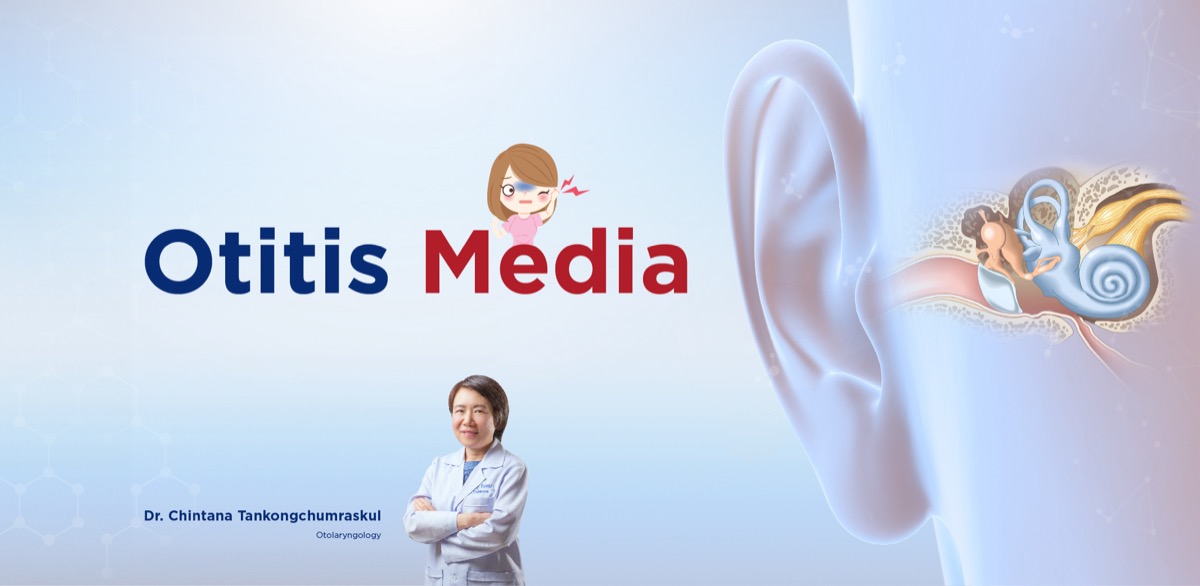
Otitis media is an infection of the middle ear that causes inflammation and swelling of middle ear membrane and a build-up of fluid or pus inside the middle ear. Common symptoms of otitis media are tinnitus, ear pain, ringing in the ears and dizziness.
Treatment Guidelines
Treatment for otitis media depends on its severity as follows:
- Acute otitis media: Acute otitis media usually caused by bacterial infection. Treatment for acute otitis media focuses on eliminating the bacteria, such as use of antibiotics, ear irrigation with saline ear solution, and pus draining from the ear.
- Chronic otitis media: Chronic otitis media is usually caused by recurrent infections or other conditions such as chronic adenoiditis and allergies. Treatment for chronic otitis media focuses on eliminating the bacteria or fungus, treating other comorbidities, and preventing recurrent infections, such as:
- Use of antibiotics in case of infection
- Surgery to correct other conditions, such as adenoidectomy and eustachian tube balloon dilation
Drug Treatment
Depending on its cause and severity, the medicines used in treatment of otitis media are as follows:
- Antibiotics: The most common forms of antibiotics used to treat acute otitis media are ear drops or oral antibiotics. The length of antibiotic treatment is determined by the severity of the infection.
- Analgesics: Analgesics are used to relieve ear pain.
- Anti-inflammatory drugs: Anti-inflammatory drugs are used to relieve inflammation of the middle ear membrane.
Surgical Treatment
Surgery is an alternative treatment for patients with severe symptoms and in cases where medications are ineffective. Surgical treatment methods used in treatment of otitis media are as follows:
- Abscess drainage: It is used to drain pus from the middle ear.
- Adenoidectomy: It is used to treat chronic adenoiditis, which may block the eustachian tube and cause recurrent otitis media.
- Eustachian tube balloon dilation: It is used to widen the Eustachian tube to allow air flow and prevent infection.
Self-Care for Patient with Otitis Media
In addition to receiving treatment as directed by their doctor, patients with otitis media should adopt the following personal care measures:
- Get enough rest
- Avoid swimming or diving
- Avoid blowing your nose or sneezing forcefully
- If you have severe ear pain, compress your ear with an ice pack or cold, damp washcloth
- If you have severe tinnitus, wear a hearing aid
If you have symptoms of otitis media, you should consult a doctor immediately to get the right diagnosis and treatment.










